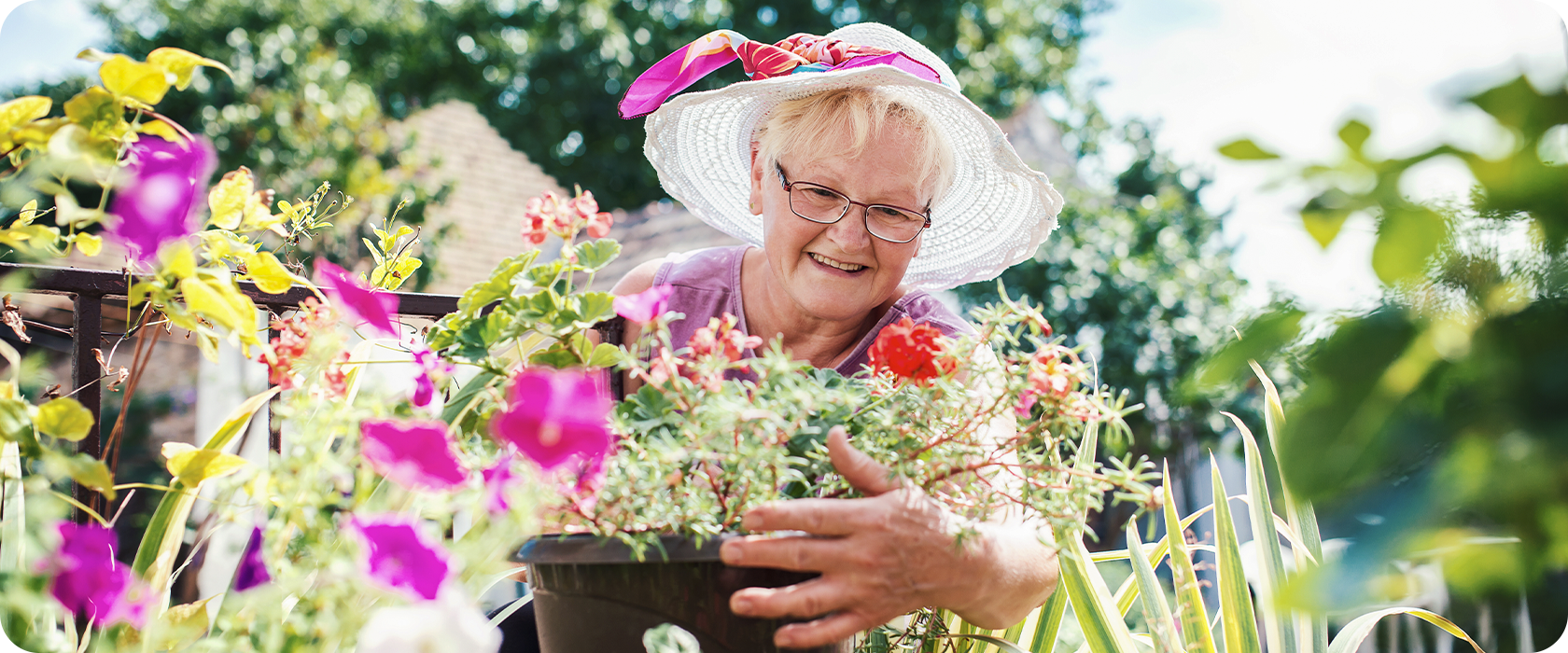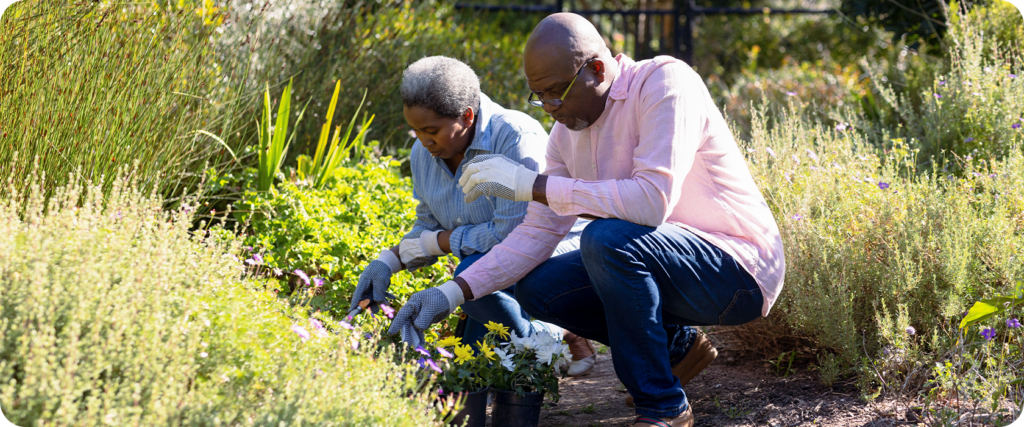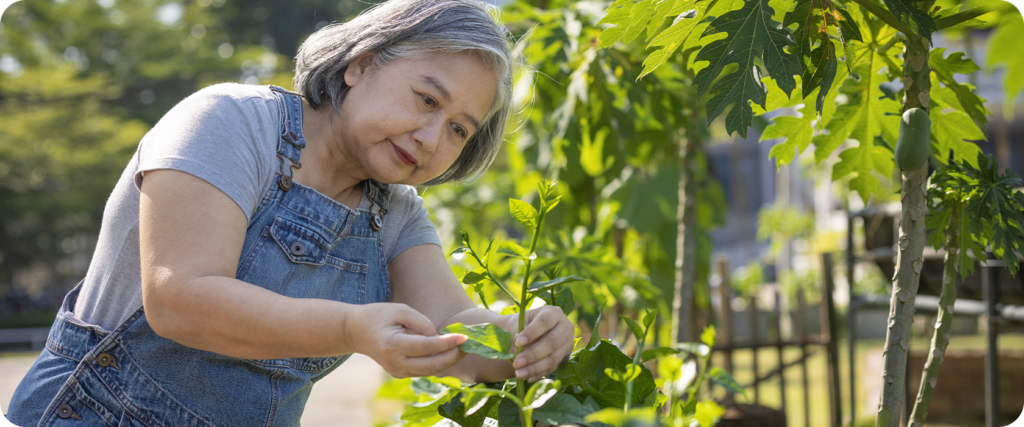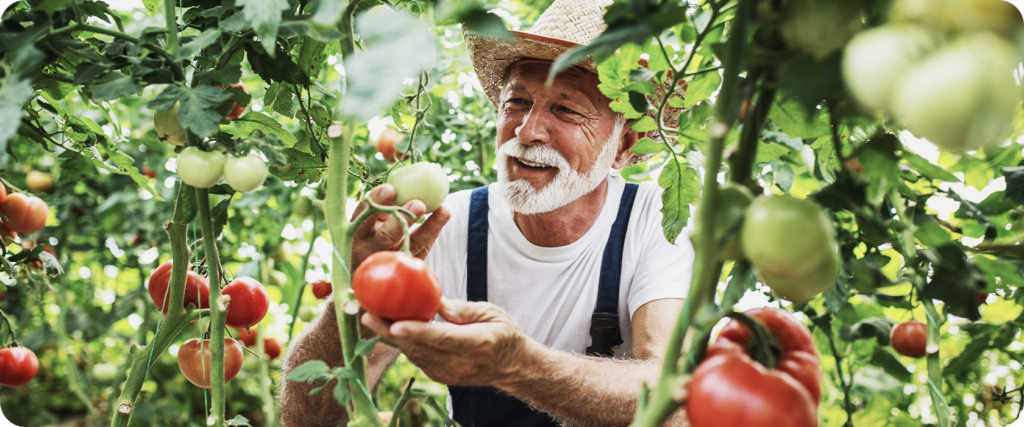Gardening for Seniors: How to Start Your First Garden

Finding activities that keep our bodies and minds active, engaged, and nourished becomes even more important as we grow older. Not only is tending to plants a relaxing way to spend time outdoors, but having your own garden provides easy access to fresh, nutrient-dense produce. Certain vegetables have even been shown to support hearing health as we age.
Whether you want to plant fruits and vegetables for a healthy snack or to add natural beauty to your yard with stunning flowers and lush landscaping, the benefits of gardening for seniors are simply unmatched.
So, roll up your sleeves and get ready to dig in the dirt—this beginner’s guide to gardening for seniors will have you growing green in no time.
Why Gardening Is Great for Seniors

Maintaining a healthy lifestyle is essential, especially as we age. For seniors, gardening is a fun hobby that provides physical, mental, and emotional benefits.
If you’re looking for ways to stay active and engaged, try gardening. What is more fun than spending a part of your day surrounded by lush greenery, colorful blooms, and healthy vegetables while breathing in fresh air?
As your hands dig in the dirt, gardening becomes a therapeutic exercise. The physical activity involved in planting and maintaining your garden can help improve cardiovascular health, maintain or increase strength, and improve flexibility and balance.
Gardening can also help boost your mood, reduce stress, and foster a sense of purpose and accomplishment. Plus, when you work together with a companion, friends, or neighbors, it becomes a bonding experience.
Gardening 101: Simple Tips to Get Started

If you don’t already have an established garden and aren’t sure where to start, follow these tips for an easy and rewarding start to your gardening journey.
Prep Your Body Before You Start Digging
Although gardening may look easy, it involves many physical tasks, such as bending, lifting, and digging, that you may not be used to.
If you haven’t been as active as you used to be, that’s perfectly fine! Elderly gardeners can start by doing light stretching exercises, such as chair yoga or gentle stretching, to warm their bodies up for natural movement in the garden.
Find the Best Gardening Tools for Seniors
When it comes to gardening tools for seniors, choose comfort and ease. These senior-friendly tools will help make your gardening experience all that more enjoyable.
Many tools on the market are designed to reduce the strain on your hands and back. Lightweight, long-handled tools minimize the amount of bending and kneeling required, which helps relieve the strain on your body. Investing in tools with cushioned grips can also help keep your hands from getting tired.
Choose Low-Maintenance Plants
Don’t have a green thumb? No worries! There are many plants that don’t require much maintenance to grow.
If you want to enjoy the beauty of a bloom, choose low-maintenance plants like marigolds, zinnias, and lavender bushes. These plants are easy for seniors to grow and still produce beautiful flowers.
If you don’t like flowering plants, try low-maintenance greenery like ferns, ornamental grasses, or succulents. These plants will provide the fresh greenery you’re looking for without stressful maintenance.
Use Raised Beds or Containers
Another way to improve gardening for seniors is to modify your space. You don’t have to plant everything directly in the ground.
Instead, work with raised beds, containers, or flower pots. Eliminating the need to bend or sit on the ground can give you the same joys of gardening without the stress on your body. You can even find elevated garden boxes made specifically for seniors. When picking a sunny spot for your garden, make sure your plot or beds are close to your home for easy access. Plus, containers and flower pots are an excellent way to garden in smaller spaces.
Discover Nutrient-Rich Plants for Better Health

Another benefit of gardening is growing your own healthy food! Focus on plants that pack a nutritional punch. Leafy greens like spinach and kale are excellent sources of folate, zinc, and antioxidants that support overall health. Brightly colored veggies like bell peppers, carrots, and tomatoes are loaded with vitamins that can benefit hearing by preventing cell damage to the inner ear.
If you have mobility limitations, consider low-maintenance vegetables that are easy to grow in containers—cherry tomatoes, zucchini, and green beans are all good choices. Herbs like basil, rosemary, and thyme require little space and make fresh, flavorful additions to any dish. Be sure to wear the correct clothing for gardeners. Sun hats, breathable shirts, and comfortable shoes will all help protect you from the elements. Remember to drink plenty of water and always wear sunscreen when working outside.
One of the most important benefits of gardening for seniors is that it empowers you to control your physical, mental, and emotional health and well-being. Plus, you might get some delicious, nutrient-rich plants out of your hard work!
These nutrient-rich plants are fun to grow and will also help improve your overall well-being and hearing health. As you work to modify your garden, don’t forget to modify other tools in your house, too.
A ClearCaptions Phone is the perfect way to stay connected to your friends and family. Call them to discuss your latest gardening accomplishment or invite them over to dig with you!
The best part? We can help you stay connected at no cost to you! Learn more about how it works today.




